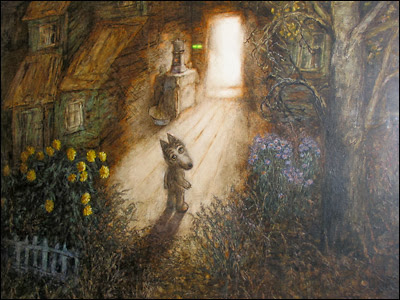Auteur Theory
."A director's film reflects the director's personal creative vision, as if they were the primary "auteur".
. Auteur = Author
. Film theory associated with French critic Andre Bazin and writers for Cahiers du Cinema in 1950s
. Suggests that great film directors are artists in their own right on a par with great novelists (Eg, Hitchcock, David Lynch, Stanley Kubrick, Martin Scorsese and Orson Welles)
. Films made by a true auteur display thematic consistency and artistic development through time
. Developed in response to Hollywood cinema and the criticism that American films are anonymous products of the studio system and the culture industry
. Truffaut - "A Certain Tendency in French Cinema" (1954) - attacks French tradition in which director is seen as simply adding images to a preexisting literary scenario
. Truffaut's theory maintains that a good director (And many bad ones) exerts such a distinctive style of promotes such a consistent theme that his or her influence is unmistakable in the body of his or her work.
. "An auteurist director was recognized as having a unique signatory imprimatur across a canon of work, that larked out an aesthetic and thematic terrain, and offered a coherent view of the discourses (A discussion, conversation, debate, etc.) fundamental to its understand and "art".
Auteur Theory in Animation
. Animation on one hand echoes and imitates large scale film production processes
. And on the other hand it offers possibilities for a film-maker to operate almost entirely alone
. So arguably it is the most auteurist of film practices
. Even at most collaborative it requires cohesive intervention of an authorial presence
. But - few animators are praised as auteurs in relation to feature length animation
- Subsumed within a corporate identity (Eg, Disney)
- Persistent view that animation is largely for a children's audience, which is not interested in issues of authorship
Disney
. Key figure in creation of art, commence and industry of animation
. Seen as the epitome of American dream, but also ideologically unsound and politically incorrect
. Walt Disney used to be involved in drawing and animating (see
this) responsible for drawing, animating, filming and set production
. With the arrival of Mickey Mouse, Disney withdrew to organize the organization
. Idea of overall ownership and vision, but is it at expense of the recognition of actual animators?
. Equally notion of absenting and demoting the original author (Eg: Alice in Wonderland/Lewis Carroll, Pinocchio/Carlo Collodi, Winnie the Pooh/A.A. Milne)
Ray Harryhausen
. Arguably maker of B movies but elevated via his use of effects, which create a distinctive and signature cinematic style
. Question of how his effects were achieved, and also what would be lost without them - virtually all narrative and symbolic content
. Located within the parameters of cinematic
. Responsible for character development, formation of story and narrative which would allow characters to come into being
. Then would drawn them, sculpt then, and bring them to life through stop-motion
. DYNAMATION
The Avant-garde
."The french term originally designated that section of an army which marched into battle ahead of the main body of troops (The "Van'") but has come to be used in both French and English to describe pioneering or innovatory trends in the arts, and especially music and the visual arts. It originates in the works of utopian socialist Henri de Saint-Simon (1760-1825) who applies it to the elite of artists, scientists and industrialists who will be the leaders of the new social order." ~ Macey, D (2000)
Carolin Leaf
. Idea of a more traditional, avant-garde, artist-filmmaker
Informative or just Interesting Links:

















































